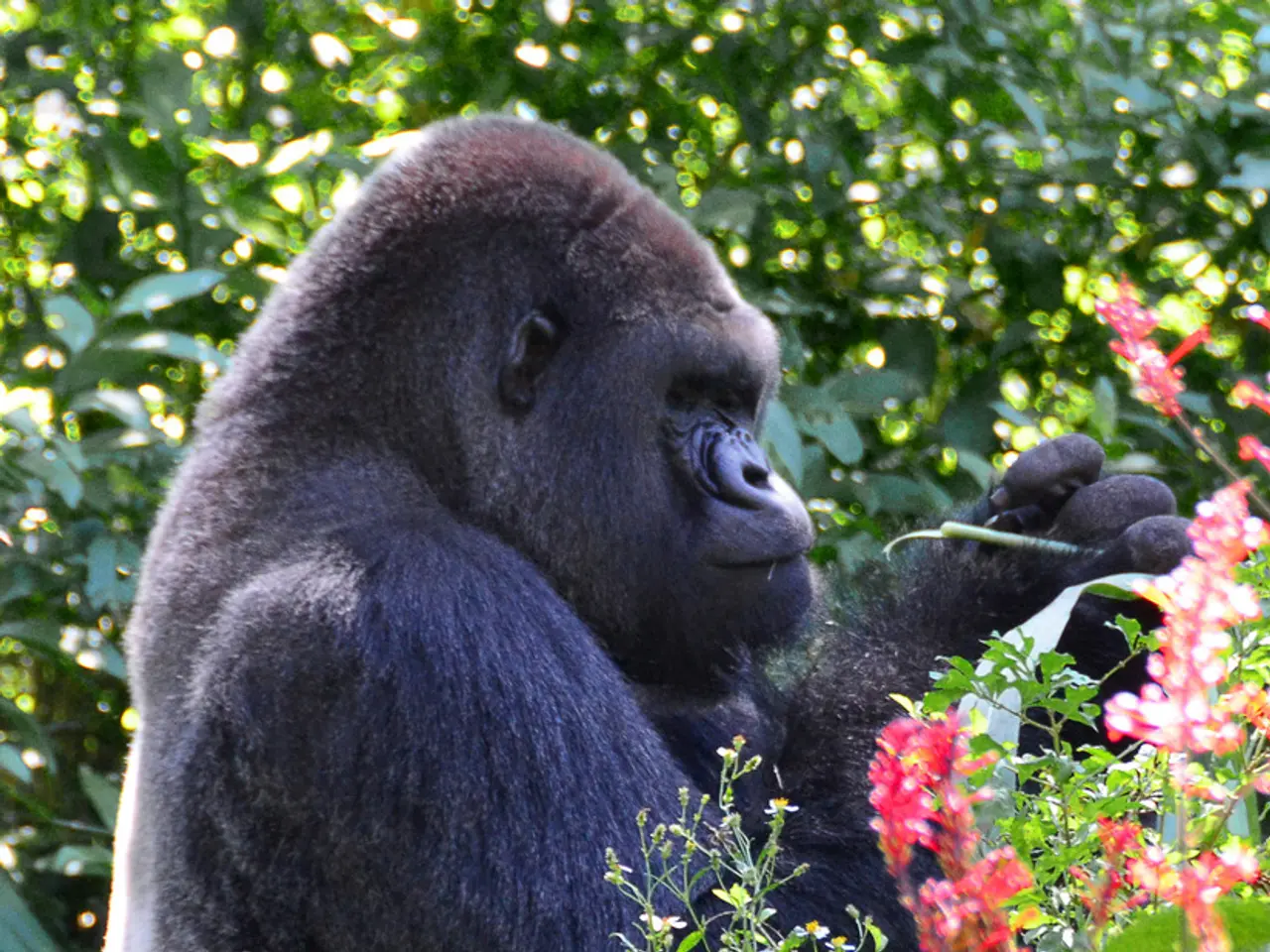Female mountain gorillas show a preference for associating with peers, according to research findings
In the dense forests of Rwanda, female mountain gorillas are forging a unique social network that mirrors some aspects of human society. A study by researchers from the University of Zurich, based on over two decades of data, reveals that these primates don't join new groups randomly but actively seek out familiar female companions [1][2].
Female mountain gorillas have a distinct approach to dispersal compared to their male counterparts. Instead of venturing out alone, they wait until they encounter another group before deciding whether to join it [1]. The study found that these females prefer to join groups that contain females they have lived with for at least five years or have seen in the last two years [2].
This preference for known females in new groups is a behaviour not previously documented in non-human primates [2]. According to Victoire Martignac, a Ph.D. student from the University of Zurich, these relationships can matter even after years apart [1]. The reason for this behaviour seems to be threefold: reducing anxiety in the new group, maintaining established social bonds, and avoiding inbreeding by steering clear of males they grew up with [1].
Avoiding males from their birth group is likely a strategy to reduce inbreeding risk because females cannot be certain of paternal identity [1]. Robert Seyfarth, an emeritus professor of psychology at the University of Pennsylvania, suggests that the connections between gorilla groups may form a larger social world, similar to how human society began to develop [3].
The implications for evolutionary roots of movement and dispersal in humans are significant. Because humans also form lasting social bonds and can disperse multiple times throughout life, these gorilla behaviours suggest that the foundations of complex social networks and strategic dispersal could be deep-rooted in our common ancestors [3].
Maintaining familiar female relationships during group transitions likely provided cognitive and social benefits that have shaped the evolution of human cooperative societies and social strategies. Such "feminist networks" in gorillas facilitate trust and cooperation, indicating that the evolution of large, cooperative human societies may have been influenced by similar social structures that help individuals manage risks and maintain social cohesion during dispersal events [3].
In summary, female mountain gorillas seek familiar females to reduce anxiety and build alliances in new groups. They avoid males they grew up with to prevent inbreeding. These bonding strategies resemble human social dispersal patterns, suggesting evolutionary continuity. Such networks likely played a key role in the development of human social complexity and cooperation [1][2][3].
References: [1] Martignac, V., et al. (2021). Female Mountain Gorillas' Social Bonds and Dispersal Decisions. Current Biology. [2] Proceedings of the Royal Society B. (2021). Social Networks and Dispersal Decisions in Female Mountain Gorillas. [3] Seyfarth, R. M. (2021). Gorilla Social Networks and Human Evolution. Trends in Ecology & Evolution.
The unique social networks of female mountain gorillas in Rwanda mirror aspects of human social structures, with these primates preferring to join groups that include familiar females, as seen in a study by researchers from the University of Zurich [1][2]. This preference for known females offers cognitive and social benefits that have shaped the evolution of human cooperative societies and social strategies, resembling what could be termed as 'feminist networks' in gorillas, which support trust and cooperation [3]. On the other hand, these same gorillas actively avoid males from their birth groups to minimize inbreeding risk, mirroring possible early human social behaviors related to health-and-wellness and fitness-and-exercise. These behaviors, as suggested by Robert Seyfarth, an emeritus professor of psychology at the University of Pennsylvania, could potentially inform our understanding of the evolutionary roots of movement and dispersal in humans, particularly in the context of science and health-and-wellness.




